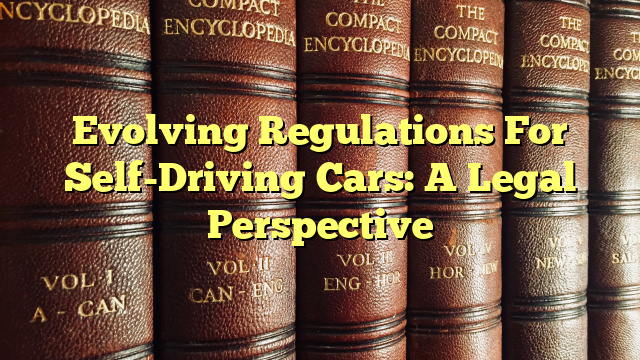Self-driving cars have recently become a major topic of discussion. As technology advances, it is becoming increasingly important to develop regulations that protect all parties involved and allow for the safe, efficient operation of autonomous vehicles. This article will provide a legal perspective on the status of self-driving cars, the reasons why they should be legalized, and the ethical issues associated with their use. Additionally, the article will review the number of states that have enacted laws about self-driving cars.
The Legal Status of Self-Driving Cars
The legal status of self-driving cars varies from state to state. Currently, the federal government has not issued any regulations regarding the testing, operation, or design of self-driving cars. As a result, states have taken it upon themselves to pass their own regulations. For example, Arizona has passed regulations that allow for the testing of self-driving cars on public roads as long as they comply with certain safety requirements. Other states, like California, have enacted more stringent regulations that require companies to submit detailed reports about their vehicles before being allowed to operate them on public roads.
Why Self-Driving Cars Should be Legalized
There are a number of reasons why self-driving cars should be legalized. Firstly, self-driving cars have the potential to greatly reduce traffic congestion. By reducing the number of vehicles on the road, self-driving cars can help to reduce traffic jams and make roads safer for everyone. Secondly, self-driving cars can help to reduce the number of accidents on the road. Autonomous vehicles are equipped with sensors and other technologies that can detect obstacles and help the car avoid collisions. Finally, self-driving cars can be used as a way to reduce emissions by reducing the number of trips made with traditional combustion engines.
The Ethical Issues of Self-Driving Cars
Self-driving cars raise a number of ethical issues. One of the most pressing issues is the potential for self-driving cars to make decisions that could result in harm to someone or something. Decisions such as when to brake, when to change lanes, or when to make a turn must be made quickly and accurately in order to keep passengers safe. Additionally, the potential for self-driving cars to be hacked or manipulated poses a threat to public safety. Finally, the legal issues associated with self-driving cars are still being worked out. Who is liable in the event of an accident involving a self-driving car? Who is liable if the car is hacked or manipulated? These are all questions that still need to be answered.
How Many States have Enacted Laws About Self-Driving Cars?
As of 2021, 36 states and Washington, D.C. have enacted laws related to self-driving cars. These laws vary in their scope and complexity, but all of them attempt to address the legal and ethical issues associated with autonomous vehicles. For example, some states have laws that require companies to report the number of miles their vehicles have traveled, while other states have created laws that require companies to obtain a special permit before testing their cars on public roads.
Conclusion
Self-driving cars are rapidly becoming a reality. As technology advances, it is important to develop regulations that protect all parties involved and allow for the safe, efficient operation of autonomous vehicles. It is clear that the legal issues associated with self-driving cars are still being worked out and more states are developing their own laws to address these issues. However, it is important to note that the ethical issues associated with self-driving cars must also be taken into consideration.

